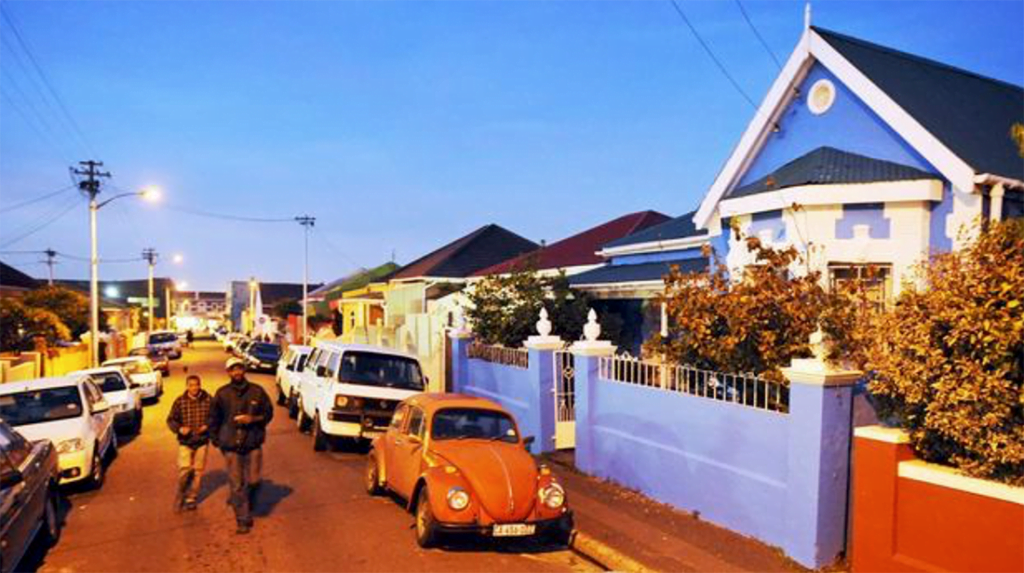The manner in which City officials dealt with SRHS’s request to use this facility to house its operations, reflects the deep-seated impact and legacy of colonial governance structures. Picture: David Ritchie/African News Agency (ANA)
NEWS / 17 FEBRUARY 2020, 12:30PM / SHABODIEN ROOMANAY
Looking back to plan ahead. This is the motto adopted by the Salt River Heritage Society (SRHS).
Founded about two years ago, the organisation’s objectives are simple.
To document and preserve the histories of a community that has in the past resided here and the many residents who still reside in the suburb. Having emerged from the social engineering experiment of apartheid, it is common knowledge that a largely pluralistic community resided in what is one of the oldest “modern” suburbs in South Africa, as we know it today.
Despite the very notion that only on the arrival of Jan Van Riebeeck in 1652 were the lights to darkest Africa switched on, there were many travellers who visited the Cape of Storms years before the Dutch East India Company dropped anchor here ostensibly to set up a station to replenish the stocks of passing ships.
Dr Ruben Richards, in his research for his book Bastaards or Humans, records and describes the Battle of Salt River in 1510, during which Portuguese explorer and colonial master Francisco De Almeida met a very cultured group of locals, often described as “heathens of the earth” but who ingloriously defeated him and his cohorts.
This took place in the contentious area occupied by the River Club in Observatory between the Liesbeeck and Black rivers. De Almeida was driven into the ocean of what today is Milnerton where they were either killed or drowned. Significantly, there is a proposal to develop this site. It will permanently erase this noteworthy heritage area which will ultimately be buried under tons of concrete.
It is interesting that people are starting to look for their roots and origins, destroyed by the imperialists.
It was this imperial and colonial policy of supplanting an existing cultural and value system, that destroyed the indigenous structures. It eventually allowed for the total domination of the subjugated peoples. This is now all recorded in our history books.
What we have today is because of this superimposition of a control mechanism that led to the wars over other peoples’ land and territory.
And it is for this reason we have a clamour for land restitution and rectification of the imperial designs.
It is interesting to note that in its quest to dig deep into the history and heritage of the suburb, the SRHS has been engaging Cape Town City Council officials to find a common space from which to operate, store and negotiate the future of this and other suburbs. In the process it had identified vacant, derelict and trashed offices attached to the Salt River Railway Institute Hall (now called the SR Civic Hall).
The manner in which City officials dealt with SRHS’s request to use this facility to house its operations, perhaps as a museum and simultaneously to share its knowledge base with other displaced communities from Nyanga, Langa, Hanover Park and Manenberg, reflects the deep-seated impact and legacy of colonial governance structures.
“That is the rule, the by-law, the regulation and the time I have to deal with this issue. Trouble us not with this query any further… ” is the threatening correspondence sent to those who requested assistance or guidance from the functionaries administering both the successive colonial governments and those who controlled the levers of power under apartheid.
There is no ubuntu, a drive for the common good, a process of self-realisation in ensuring that the very people who have elected officials will be served. Instead, the system dictates that civil servants be served. They are omnipotent. They will switch off their computers at 4pm and go home.
You have to deal with them with utmost care lest your application for plan approval falls off the table.
And so, the point is that we need a new drive to hold civil servants to account. The SRHS is but one example of the kragdadigheid experienced by many. Its aims are to be a pilot, driven by people from the community, to not only record their own heritage, but to reach out to people in Hanover Park and Gugulethu whose experiences, trials, oral and personal histories and artefacts need to be collected, collated and recorded.
These, among others, are a people who are voiceless. Do we still need to be ruled by the queen as we are still part of the foreign territories?
* Shabodien Roomanay is a social activist and founder member of the Salt River Heritage Society.
** The views expressed here are not necessarily those of Independent Media.
Cape Argus


